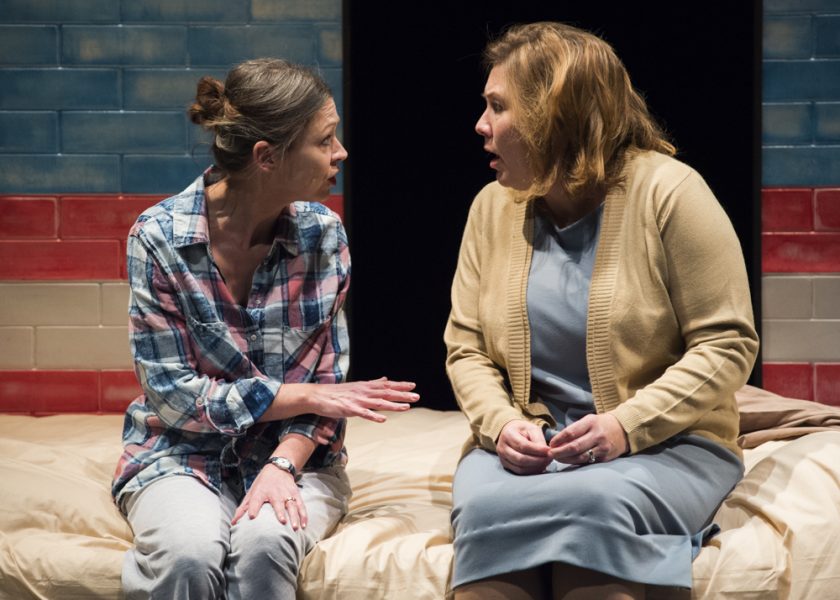@ Summerhall, Edinburgh, until Sat 3 Oct 2015 (and touring)
Celebrating Arthur Miller‘s 100th anniversary, this season Rapture Theatre puts on stage two of the playwright’s most famous works. After the interpretation of All My Sons, the play which brought Miller the reputation of a great playwright, we see his late opus The Last Yankee. The story evolves around Leroy Hamilton, a descendant of one of America’s Founding Fathers, who is living a modest life as a carpenter, and his depressed wife Patricia, to whom he is paying a visit in a state mental hospital. While they are struggling to come into terms with their marriage, he encounters John Frick, a successful businessman, whose hospitalised spouse Karen befriends Patricia in the meantime.
Unlike the big-stage All My Sons, this one is an intimate, chamber play taking place among two beds in a scant hospital room, where you almost feel as an intruder peeping into someone’s personal conversation. This feeling is reinforced by the clever choice of venue: Summerhall’s Red Lecture theatre, whose auditorium desks create an atmosphere reminiscent of a clinical observation.
In keeping with the theme of the Scottish Mental Health, Arts and Film Festival of which The Last Yankee is part, the actresses’ representations of depression sufferers are touching, profound, multi-layered. Pauline Turner stuns with her ability to detect and re-create Patricia’s attitude changes in the presence of her husband and in Karen’s company. Alas, we do not see that much of the Last Yankee. Although it appears that Miller put a lot of his own personality into the title character (dealing with a son with Down Syndrome and the depression-suffering Marilyn Monroe, plus doing carpentry as a hobby), David Tarkenter‘s Leroy seems to be constructed through the attitude of the other characters towards him, rather than on his own merit. Compared to his female counterpart, the character is underdeployed and rudimental.
Although it‘s just over an hour long, the richness of the text makes the play appear longer than it actually is. Taking place within a single day, the story evolves imperceptibly before the viewers’ eyes, skilfully increasing in its emotional intensity. Despite its sombre topic, director Michael Emans’ staging does not evoke gloomy emotions. Rather, it successfully serves its purpose of raising awareness about mental health issues, while being an uplifting, life-enhancing interpretation of one of the best examples of modern dramaturgy.
